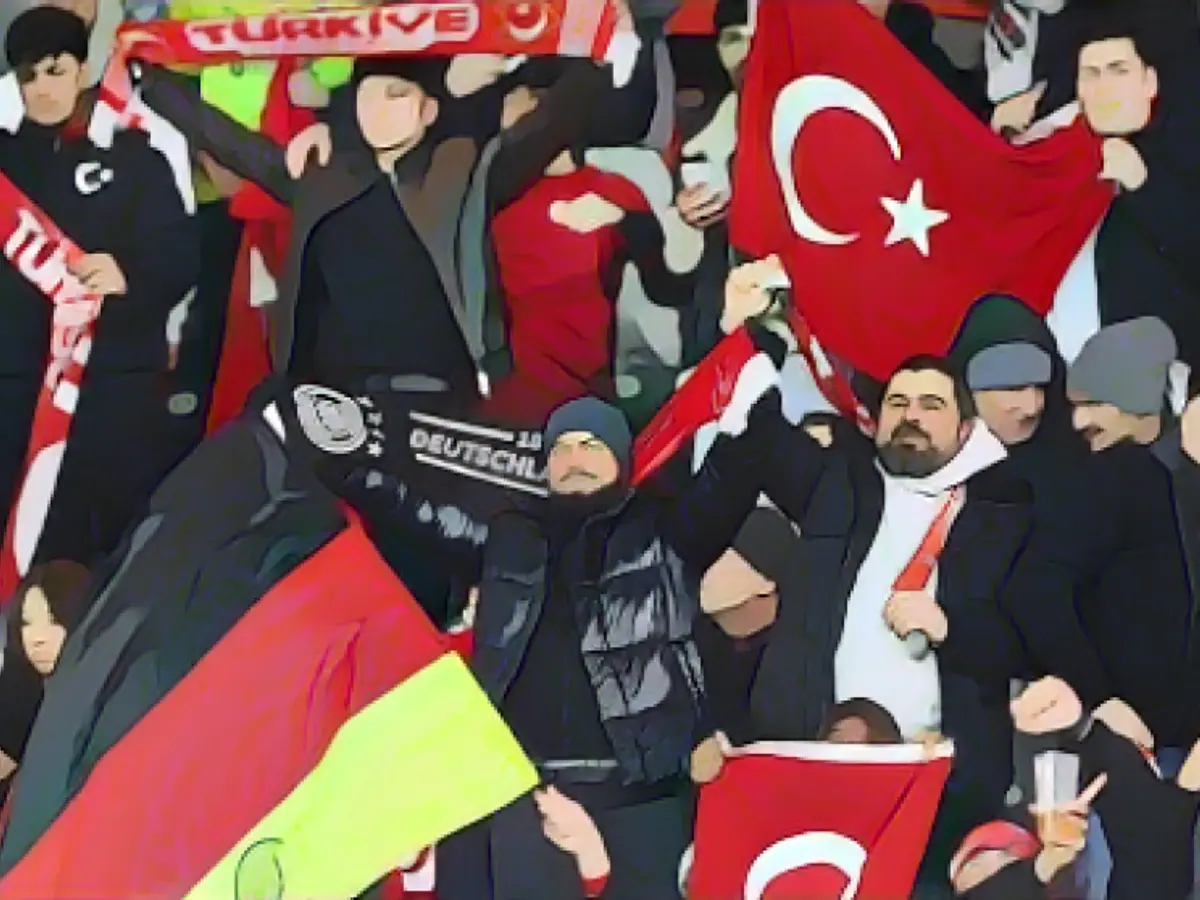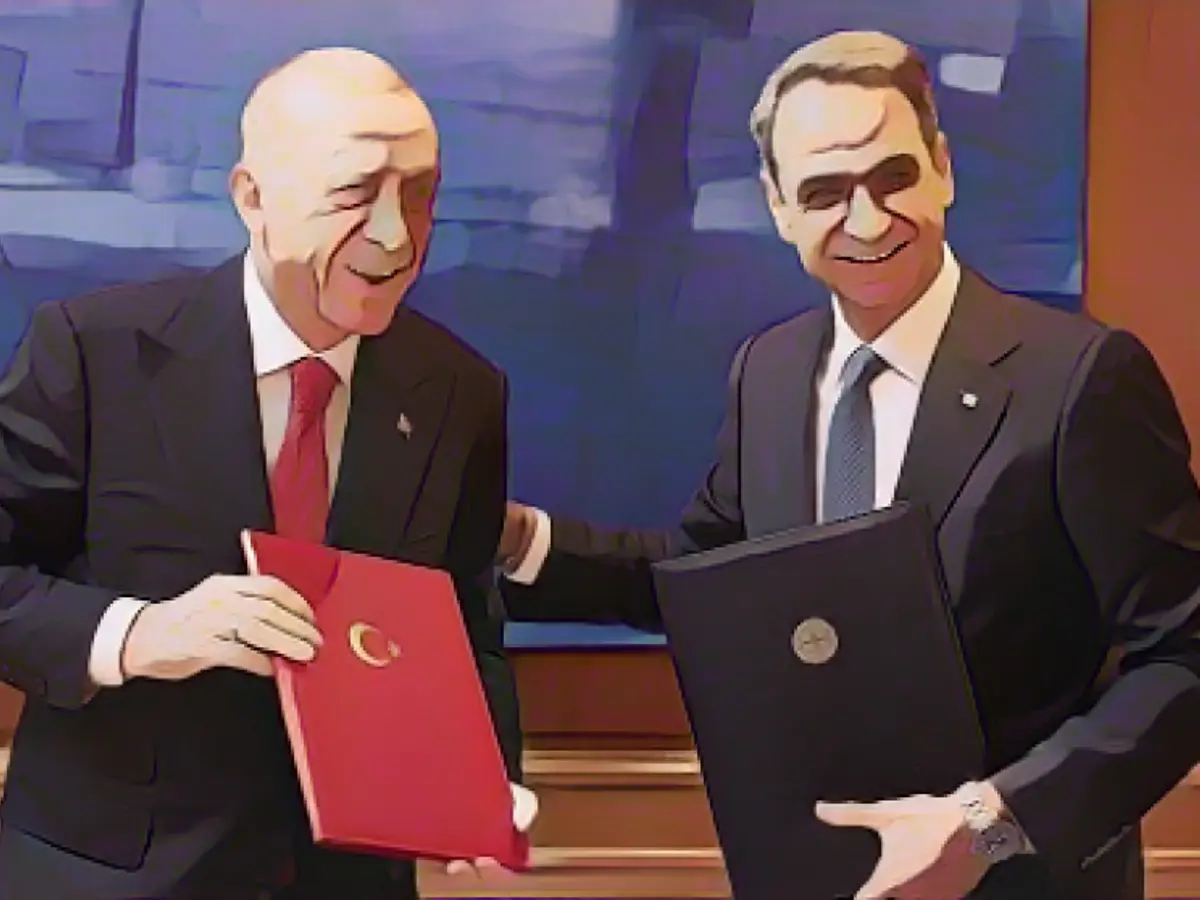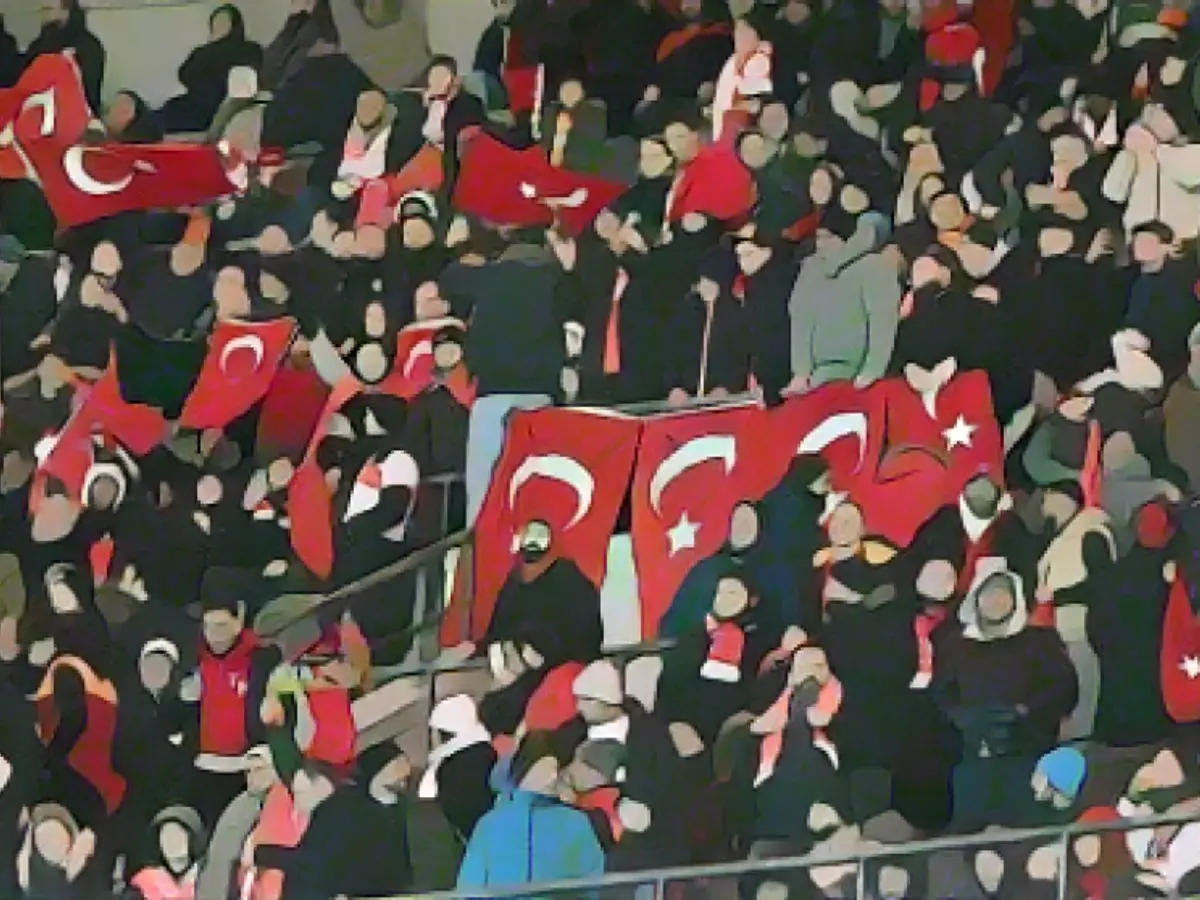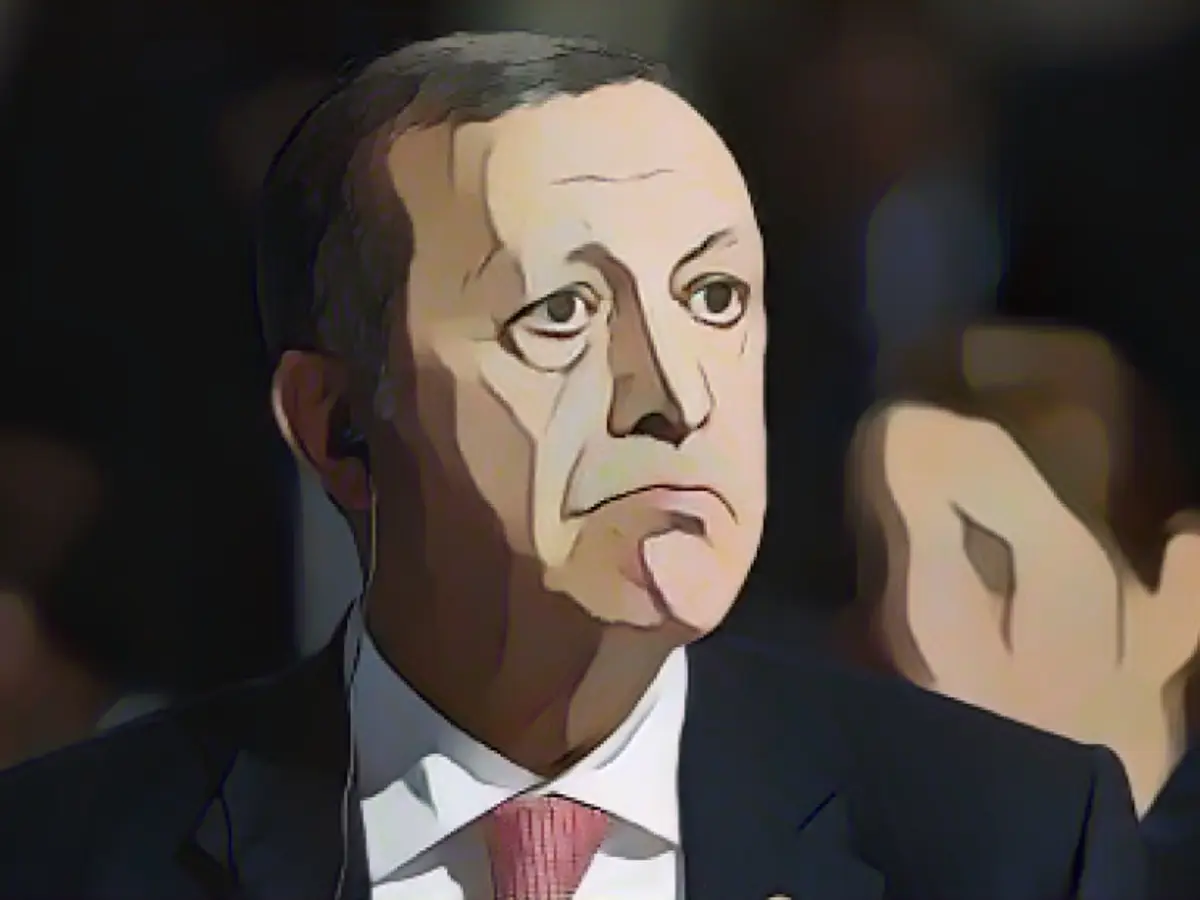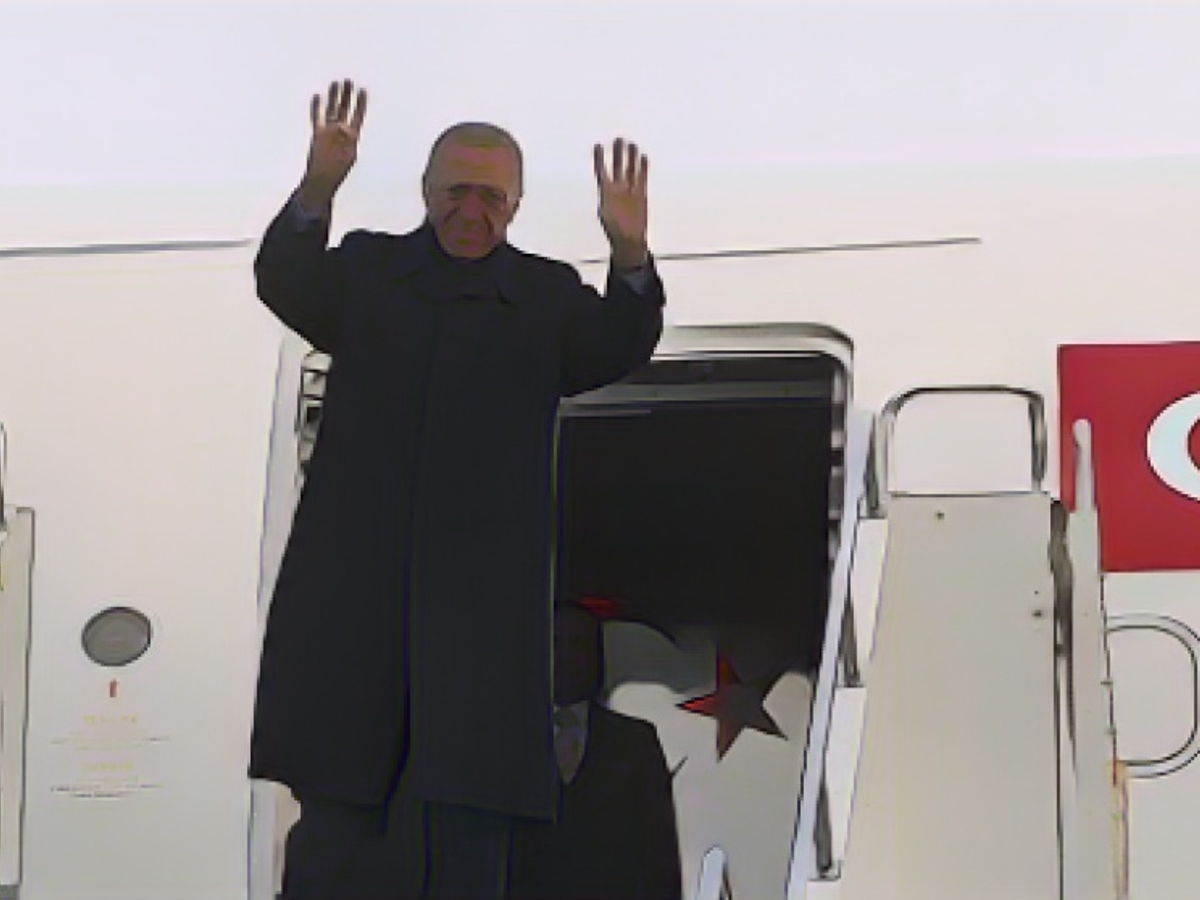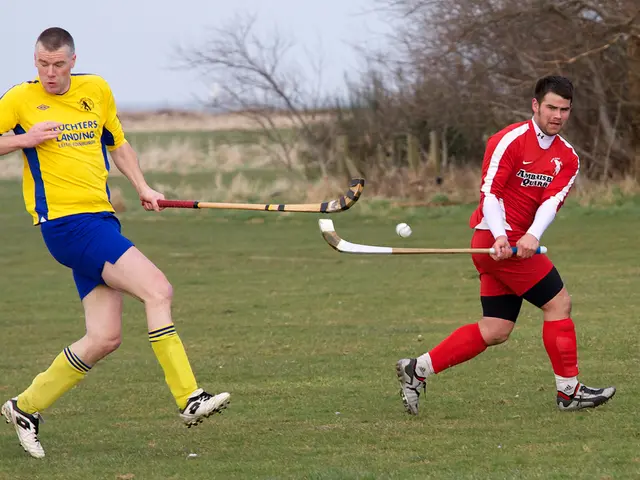Why the Silence from Germany, Though?
It didn't feel like home.
It wasn't home for our team on Saturday evening as they took the field in their red and white jerseys. Instead of black, red, and gold, the echoes of cheers were for Turkey and their 3-2 victory against our national squad. Whistles and boos were directed at Germany's captain and the home team while the crowd cheered for the opposing side.
It all happened swiftly after Turkish President Erdogan's visit to Berlin. His trip stirred more than just political fervor, as a large majority of Turks living in Germany re-elected him with conviction just a few months earlier. And as thousands of Turkish fans partied in motorcades through our city centers afterward, they continued to support their team with unwavering passion.
Dozens shouted the far-right "gray wolves" salute once more, while the German team stayed comfortably at home in front of the TV.
The home stadium became Turkey's for the night. Some argue that one should welcome the colorfulness of a community's support, even if it came with divisive undertones. But I say, "No! This shows quite a bit about our country in 2023."
It is our embarrassing reticence towards passion for our country. Our timidity in expressing pride for our democracy, our values, and our prosperity. After all, we built this with much determination and energy from many Germans of Turkish origin.
"It's painful to see native Germans or long-time residents turn against our national team at a home match," said FDP Secretary General Bijan Djir-Sarai (47). "It is another indication of the failures and deficits in our integration policy."
For 90 minutes, we witnessed the difference in enthusiasm between tens of thousands of Turkish fans who mobilized through foggy weather to cheer for their team. No, they did not cheer for the team they reside in – instead, they roared for their homeland with unbridled passion and dedication.
And what of us? The black, red, and gold team watched TV in comfort with a beer, grumbling about their own team, instead of with passion and pride.
It's natural to feel envious of the soccer fervor shown by the Turkish community. But unfortunately, their enthusiasm goes beyond the sport itself.
Ilkay Gündogan, Germany's Turkish-born captain, was mercilessly booed throughout the match. Integration expert Eren Güvercin (43) said that several German-Turks see him as a "traitor."

But Gündogan is not a traitor. He is an exemplary German who embodies the nation's values. He deserves our well-deserved cheers and support, just like our team and our country.
It's time to be loud when our national team contends for the European championship. And even louder when it comes to our values, about our democracy, and about all of us. Then, it will truly feel like home.
- Hostile cheers and boos directed towards German players during their home match and support for the opposing team – largely composed of Turkish fans.
- Ilkay Gündogan, the German-Turkish captain, faced merciless boos throughout the game due to his origins, with many German-Turks deeming him a "traitor."
- The contrast between the enthusiastic and passionate Turks cheer their team and the subdued and hesitant crowd supporting their team at home.
Source:
Enrichment Data:
The lack of passion and pride observed from some German soccer fans, resulting in hostile behavior towards Turkish players and opposing teams, can be attributed to several complex factors.
- Historical Context and Racism:
- Racism in German Football: Discriminatory behavior, including monkey chants and Nazi salutes, has persisted in German football, particularly towards players of color, including those of Turkish and African descent.
- Political and Social Factors:
- Right-Wing Extremism: Some fan bases have links to right-wing extremist groups that promote anti-immigrant and anti-Semitic sentiments.
- Lack of Action from Authorities:
- Inadequate Sanctions: Historically, German football authorities have been criticized for not taking sufficient action against racist fans, which may contribute to a permissive environment.
- Cultural and Social Issues:
- Integration and Xenophobia: Struggles with integrating immigrant communities have contributed to broader societal issues and a broader societal issue of xenophobia, which can manifest in sports culture.
- Recent Incidents:
- Support for Opposing Teams: Support for opposing teams, particularly when players of color are involved, can be seen as a form of solidarity with right-wing ideologies or a way to protest perceived unfair treatment of their own players.
- Fan Culture and Identity:
- Extremist Groups: Some fan groups have been linked to extremist ideologies, which can influence the behavior of other fans and promote a hostile environment.
- Lack of Unity and Pride:
- Internal Divisions: Lack of unity and pride among German fans can be attributed to internal divisions and the influence of extremist groups, causing fans to seek other forms of identification.
Addressing these issues requires a comprehensive approach, including stronger sanctions, better integration of immigrant communities, and a more inclusive and unified fan culture, which helps promote passion, pride, and unity among German fans.
